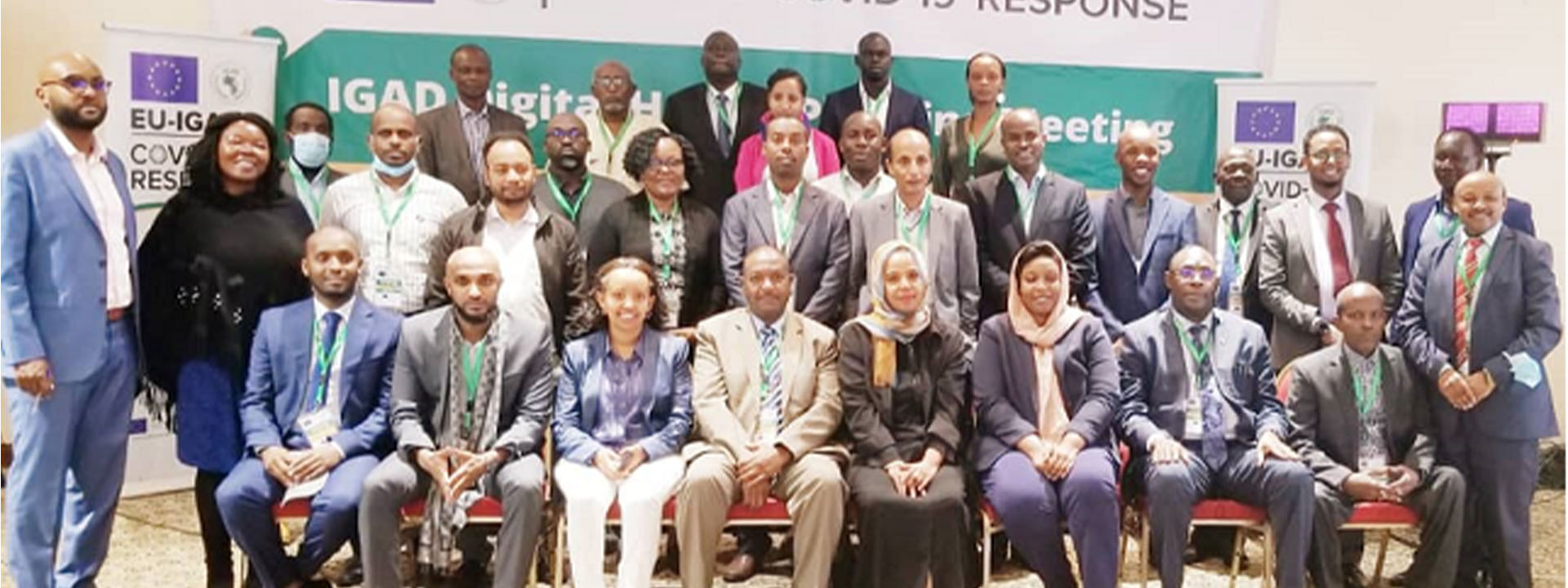August 1, 2022 (AddisAbaba, Ethiopia) The Intergovernmental Authority on Development (IGAD), commenced a Digital Health Planning Meeting with the Member States, this morning, in Addis Ababa, Ethiopia.
The main objective of the three-day meeting is to review the first phase of the digital health project that highlights the major achievements including the endorsement of the data sharing and protection policy and the baseline assessment conducted in selected cross-border areas.
In her opening remarks, Mme. Fathia Alwan, IGAD Director for Health and Social Development Division noted that the project will support the in-country implementation of the Data Sharing and Protection Policy as well as the implementation of the Regional Disease Surveillance and Monitoring system with the Member states supporting IGAD in achieving this goal as a region.
“One of the main challenges we are facing in the IGAD region is the high number of diseases in the region and more so the COVID pandemic and the emergence of a new pandemic the monkey pox contagion.” She added.
Furthermore, the Director emphasised that to Mitigate the disease burden and the current Pandemics, IGAD as a region endorsed the cross-border data sharing and protection policy that would allow our region to better communicate and prepare for Pandemics and how we respond to them and to set up a surveillance system that will robustly help our region be pandemic prepared.
The IGAD Digital Health Planning Meeting with the Member States was chaired by Sudan, Ethiopia as the host country opened the meeting with representatives from Uganda, Kenya, South Sudan, Somalia,Djibouti, and GIZ (the implementing partner).
In the opening remarks of the IGAD digital health planning meeting Dr. Arwa Omer head of Monitoring, Evaluation, Accountability, and Learning Section Directorate General Global Health Federal Ministry of Health – Sudan explained that health Data in the region is quite a challenge and this has been obvious during COVID-19 Pandemic (SDG Indicators poorly reported from the region), Surveillance systems still need enhancements and we still need to work on enhancing our HIMSs.
“I am very optimistic that by end of this meeting we will have a clear way forward roadmap that each member state can tailor and customise according to their context for successful implementation.” Dr.Omer said.
Dr. Joseph Okware Director of Health Services, Ministry of Health Uganda stated that the initiative is an opportunity to strengthen information sharing and surveillance for emerging and re-emerging infectious diseases between countries to enable quick detection and containment of outbreaks at the source.
The IGAD Digital health planning is a regional dialogue that will plan on Health Digitalisation in the IGAD region for the next year.
Currently, the second phase of the IGAD digital health program runs until September 2023 and continues with the in-country implementation of the Data Sharing and Protection Policy as well as the implementation of the Regional Disease Surveillance and Monitoring system.
The IGAD Digital Health program has successfully completed major milestones since its inception late last year led to the ministerial meeting that endorsed the data sharing and protection policy and framework, and a baseline assessment in selected cross-border sites was recently concluded.
The meeting brought together two experts from each IGAD Member State (One from Policy and Planning and one from Health Information Systems (HIS), 7 IGAD COVID-19 National Coordinators, and 11 staff from IGAD Digital Health.
The meeting is supported by funds from the EU-IGAD COVID 19 response Component 4 led by BMZ – GIZ in collaboration with IGAD.
The IGAD digital Health Planning Meeting with the Member States in Addis Ababa concluded with Dr. Ruth Belachew Chief of Staff for the Minister Ministry of Health, Ethiopia.
Recommendations
- MS to share a full vaccination coverage report to IGAD at the soonest
- IGAD to engage with other RECs and WHO on cross-border data sharing and data security.
- The Regional Disease Surveillance Platform should cater to all diseases (human and zoonotic)

